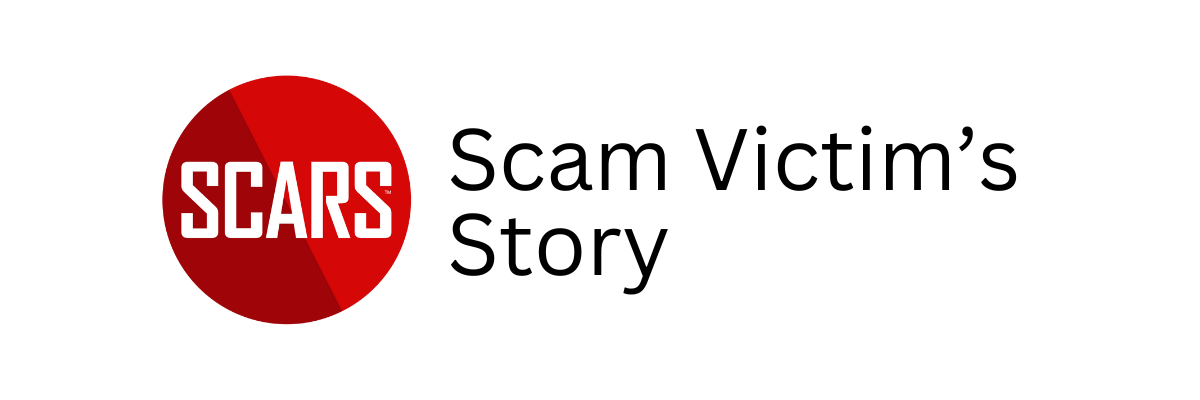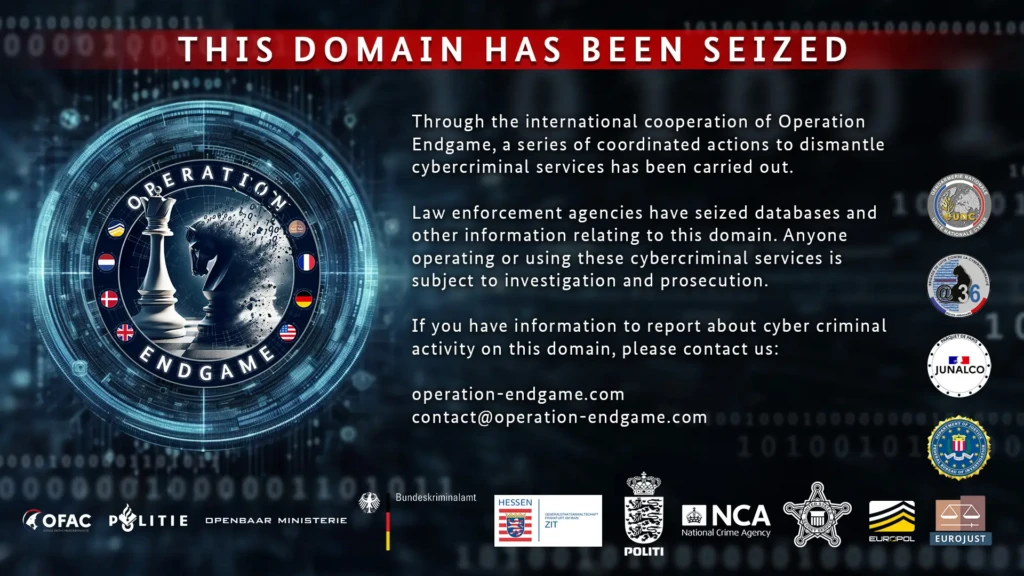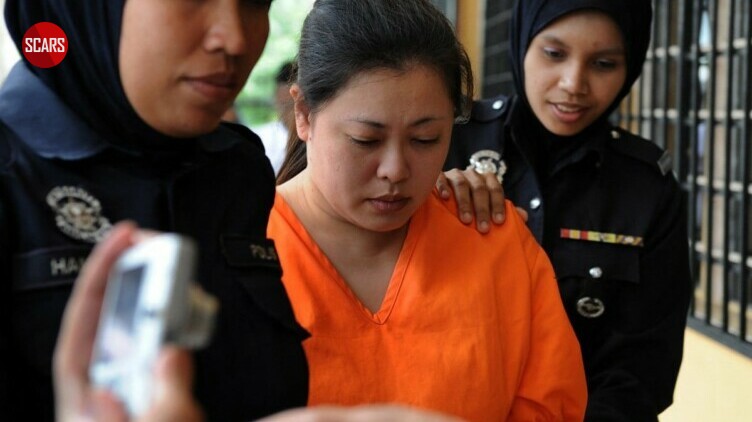Mariko Takeuchi – Romance Scam Victim Became An Unwitting Drug Mule
An Example of how Online Relationships can get someone arrested!
Primary Category: Victim’s Story
Author:
• SCARS Editorial Team – Society of Citizens Against Relationship Scams Inc.
• Yahoo Japan and other sources
About This Article
Mariko Takeuchi, the first Japanese national sentenced to death for drug trafficking in Malaysia, had her death sentence commuted to 30 years in prison on May 29, 2024, following judicial reforms that abolished mandatory capital punishment for certain offenses.
Arrested in 2009 for carrying 3.5 kilograms of methamphetamine from Dubai, she claimed she was unknowingly used as a drug mule by an acquaintance. Despite her defense, Malaysian courts consistently found her testimony not credible, leading to her death sentence in 2011.
After losing multiple appeals, her final chance for clemency came with the recent legal changes. Takeuchi’s case highlights the severe penalties for drug trafficking in Malaysia and the potential for reforms to impact long-standing sentences.
She could potentially walk free by 2029, reflecting the global implications of judicial reforms on individuals caught in complex legal and criminal circumstances.

Mariko Takeuchi: Another Romance Scam Victim Turned into a Drug Mule and Was Arrested
She came from Japan to meet an Online Stranger and Malaysia sentenced her to hang for 3.5kg of meth. Now she gets to live
- Mariko Takeuchi was the first Japanese national to be sentenced to death for drug trafficking in Malaysia
- But she could now walk free by 2029 after her death sentence was commuted following last year’s judicial reform
Malaysia’s top court on Wednesday, May 29, 2024, commuted the death sentence imposed on a Japanese woman for drug trafficking to 30 years in prison, following a judicial reform that scrapped mandatory capital punishment for drugs and several other serious offenses.
In a unanimous decision, a panel of three judges at the Federal Court replaced the death sentence handed to Mariko Takeuchi, 50, with imprisonment of 30 years from the date of her arrest in 2009, after reviewing an appeal for a lesser punishment.
The Set Up
Mariko, represented by counsel Mohd Rafik Rahem, during her defense trial, she claimed that prior to her arrest, she had gone to Dubai to collect a sum of money from ‘Alex’, the friend of a good online friend of hers, to deliver to the latter (good friend).
She claimed after five days in Dubai, she met Alex’s driver who asked for her help to send a bag of clothing to Malaysia. She never checked the contents because of the steady manipulation from her online friend.
“The circumstances surrounding her testimony were unjustified and suspicious. Alex could have personally sent the money to his girlfriend and did not need the accused to come and take it from him,” held the judge.
The judge also noted, based on Mariko’s passport, that she had entered Malaysia five times before being arrested.
In 2011
A Malaysian court has sentenced a Japanese nurse to death by hanging for drug trafficking.
The High Court in central Selangor state found 37-year-old Mariko Takeuchi guilty of transporting 7.7 pounds (3.5 kilograms) of methamphetamine in a suitcase when she flew from Dubai into the Kuala Lumpur International Airport on Oct. 30, 2009.
Takeuchi is the first Japanese convicted of drug trafficking in Malaysia. A conviction carries a mandatory death penalty. Takeuchi’s lawyer Mohamad Rafik Rahem said Tuesday they will appeal the verdict.
The court rejected Takeuchi’s claim that she had not known about the drugs and was carrying the suitcase as a favor for an Iranian acquaintance.
Mohamad Rafik said Takeuchi was “very sad and disappointed.
Mariko, represented by counsel Mohd Rafik Rahem, during her defence trial claimed that prior to her arrest, she had gone to Dubai to collect a sum of money from Alex, the boyfriend of a good friend of hers, to deliver to the latter (good friend).
She claimed after five days in Dubai, she met Alex’s driver who asked for her help to send a bag of clothing to Malaysia.
In her judgment, however, Justice Datuk Siti Mariah Ahmad brushed aside Mariko’s defense as a made-up story.
“The circumstances surrounding her testimony were unjustified and suspicious. Alex could have personally sent the money to his girlfriend and did not need the accused to come and take it from him,” held the judge.
The judge also noted, based on Mariko’s passport, that she had entered Malaysia five times before being arrested.
Mariko’s defense had been that she preferred to travel to Malaysia because the airfare was cheaper than the hotel rates in Dubai.
But the judge remained dissuaded, pointing out that based on the flight itinerary, the airfare from Kuala Lumpur to Dubai was a hefty RM10,500.
“The accused also failed to produce her so-called ‘good friend’ as a witness in her defense,” the judge noted, among others.
After the verdict was translated into Japanese by an interpreter from the Japanese embassy, Mariko wearing a brown jacket over a black T-shirt and jeans broke down in tears and had to be calmed down by court police.
Japanese embassy staff and media representatives from the country were also seen in the public gallery.
Deputy Public Prosecutor (DPP) Aimie Yusreena Yunus stood in for DPP Gan Peng Kun who called six witnesses during the prosecution stage while Mariko was the only defense witness.
In 2015
A 41-year-old Japanese woman has lost her last chance to escape the gallows with Malaysia’s highest court affirming the death sentence meted out by a lower court for trafficking drugs into the Southeast Asian country, her lawyer said Friday.
The five-man bench of the Federal Court unanimously rejected Mariko Takeuchi’s appeal on Thursday.
“Basically, the court does not believe her defense,” her lawyer Teh Poh Teik told Kyodo News.
Teh had argued that there was a defect in the chemical analysis of the drug and questioned why the assistant chemist who conducted a particular test was not called to testify by the prosecution.
He also suggested to the court that Takeuchi, a former nurse, should have been charged with “possession,” for which the heaviest punishment is life imprisonment, instead of trafficking, which carries a mandatory death sentence.
“But in the end, just like the high court and the court of appeal, the federal court found her story not credible,” Teh said.
Takeuchi was convicted by the high court and sentenced to death in October 2011 for trafficking 3.5 kilograms of methamphetamines into Malaysia on Oct 30, 2009. In March 2013, she failed to get the appellate court to overturn her conviction and she took her case to the Federal Court where she again lost.
Under Malaysian law, anyone found possessing a minimum of 50 grams of methamphetamine is considered to be trafficking in a dangerous drug, which is punishable by death.
Takeuchi had pleaded innocent in her first trial. She testified that she did not know about the drugs found in a suitcase she brought to Malaysia from Dubai. She said she was carrying the suitcase as a favor for an Iranian acquaintance.
Takeuchi, who has been incarcerated since her arrest, is the first Japanese national to be tried on a drug trafficking charge in Malaysia and the first sentenced to hang.
Teh said her last resort is to seek a pardon from the Sultan of Selangor state. Meantime, Takeuchi is being held at a women’s prison in northeastern Kelantan state.
Accordign to Yahoo.jp:
PUTRAJAYA, Malaysia — May 29, 2024 – The retrial of Mariko Takeuchi, a 50-year-old prisoner who has been sentenced to death for drug smuggling in Malaysia and is imprisoned, was held at the Federal Court (Supreme Court) in the administrative capital of Putrajaya on the 29th, and the sentence was commuted to 30 years in prison.
Following a review of the death penalty system in Malaysia last year, Takeuchi had requested a retrial.
Takeuchi is from Aomori Prefecture. In October 2009, I arrived in Kuala Lumpur from Dubai, United Arab Emirates (UAE). About 3.5 kilograms of methamphetamine were found in the luggage and he was charged with violating the Dangerous Drugs Act (illicit trafficking).
At the time, Malaysia had a mandatory death penalty system that imposed the death penalty for anyone found guilty of drug trafficking or other serious crimes such as murder, terrorism or kidnapping. Takeuchi claimed that he was only keeping a package that an acquaintance had asked him to keep, but he was sentenced to death in 2015.
Last year, the Malaysian government abolished the mandatory death penalty, paving the way for retrials of death row inmates whose sentences have been finalized and are imprisoned under the system.
Please Rate This Article
Please Leave Us Your Comment
Also, tell us of any topics we might have missed.
Thank you for your comment. You may receive an email to follow up. We never share your data with marketers.
-/ 30 /-
What do you think about this?
Please share your thoughts in a comment above!
More Victim Related Information:
- Sharon Armstrong’s Story [VIDEO] (romancescamsnow.com)
- Sharon Armstrong A Victim’s Story (romancescamsnow.com)
- A Tragic Canadian Romance Scam Victim Story (scamsnow.com)
- Romance Scam Victim Steals And Gives To Her Scammer – 2024 (scamsnow.com)
- A Desperate Scam Victim – Ann Mayers – Becomes A Bank Robber – 2024 [VIDEOS] (scamsnow.com)
- The Tragic Story Of Laura Kowal – A Romance Scam Victim Who Died Possibly At The Hands Of The Ghana/Nigerian Scammers – 2024 – [Videos] (scamsnow.com)
- Scam Victims Becoming Drug Mules In Japan And The Case Of Donna Nelson – 2024 (scamsnow.com)
- U.S. Bank President Lured Into Pig Butchering Scam – Embezzled Almost $50 Million – 2024 (scamsnow.com)
- Romance Scam Victim Steals And Gives To Her Scammer – 2024 (scamsnow.com)
-/ 30 /-
What do you think about this?
Please share your thoughts in a comment above!
SCARS LINKS: AgainstScams.org RomanceScamsNOW.com ContraEstafas.org ScammerPhotos.com Anyscam.com ScamsNOW.com
reporting.AgainstScams.org support.AgainstScams.org membership.AgainstScams.org donate.AgainstScams.org shop.AgainstScams.org
youtube.AgainstScams.org linkedin.AgainstScams.org facebook.AgainstScams.org
ARTICLE RATING
TABLE OF CONTENTS
CATEGORIES
MOST POPULAR COMMENTED ARTICLES
POPULAR ARTICLES
U.S. & Canada Suicide Lifeline 988
![NavyLogo@4x-81[1]](https://scamsnow.com/wp-content/uploads/2025/04/NavyLogo@4x-811.png)
ARTICLE META
WHAT PEOPLE ARE TALKING ABOUT LATEST SITE COMMENTS
See Comments for this Article at the Bottom of the Page
on Substance Abuse Susceptibility And Scam Victims – 2024: “It is understandable how some would feel that alcohol or substance abuse would be helpful in handling their feelings after…” Jul 1, 20:36
on Scam Victims Use Work To Avoid Healing: “The last 6 years have been the most difficult of my life. The pandemic, having both parents in the hospital…” Jun 29, 18:38
on Entitlement Mentality And How Scam Victims Often Lose Their Path To Recovery – 2024: “Thank you for this discussion of entitlement. I can see from the descriptions listed that I have not felt entitlement.…” Jun 29, 18:22
on Samurai Wisdom and Rituals for Clearing the Mind After Scam Trauma – 2025 – [VIDEOS]: “A great guide on how to move forward in our recovery process with a calm mind, cleansed on an ongoing…” Jun 28, 07:34
on Delayed Gratification and Patience in Scam Victim Recovery – 2025 – [VIDEOS]: “We want to recover quickly and… we make new mistakes. How not to speed up the recovery process, how to…” Jun 28, 06:41
on The Unique Injury Of Betrayal Trauma On Scam Victims – 2024: “Primarily because you did not see it coming” Jun 27, 23:57
on Changes In A Scam Victim’s Life: “I really detest the way my trust in others has been affected by the scamming I went through. I used…” Jun 27, 14:47
on The Unique Injury Of Betrayal Trauma On Scam Victims – 2024: “Betrayal Trauma is the worst feeling ever. Why does it seem so much worse when a scammer does that to…” Jun 27, 14:34
on EMDR Therapy For Scam Victims’ Trauma – A Part Of The Recovery Process For Many – 2024: “Very comprehensive article explaining all aspects of EMDR. I’d only heard of it before and now I have a much…” Jun 26, 19:01
on Forgiving Yourself After Surviving a Romance or Investment Scam – 2025: “Thank you for this valuable article. Self-forgiveness was for me the biggest step that led to my recovery. That also…” Jun 26, 17:28
on Counseling And Your Native Language: “These points make perfect sense. I can’t imagine trying to express complex emotions in a second language. I realize many…” Jun 26, 16:05
on Thought-Terminating Cliches – How What You and Others Say Stops Critical Thinking and Recovery for Scam Victims – 2025: “I didn’t realize that these “innocent phrases” clichés ending thoughts, can have such effect / negative -inhibiting / on our…” Jun 26, 14:48
on Scam Victim Resistance In Support Groups Therapy Or Counseling Can Destroy Opportunities For Recovery – 2024: “Working with either a support group or therapist to me means a self commitment to actively participating in the therapy.…” Jun 24, 21:01
on ‘I Just Want To Forget It’ – Denial & Avoidance Are Natural But Will Not Help Scam Victims On Their Path To Recovery From Scams – 2024: “My financial loss, the shock and betrayal of the crime ending all combined to fray my nerves and spend hours…” Jun 24, 20:10
on You Hate Being Told What To Do? How Your Rebellious Mentality Can Sabotage Your Recovery – 2025: “I am a bit of a rebel, and the moment someone tells me to do something, worse, does it even…” Jun 24, 15:04
on You Hate Being Told What To Do? How Your Rebellious Mentality Can Sabotage Your Recovery – 2025: “You are very welcome” Jun 24, 03:01
on You Hate Being Told What To Do? How Your Rebellious Mentality Can Sabotage Your Recovery – 2025: “This is a great article, which makes perfect sense as to why anyone would resist the help offered to them.…” Jun 23, 20:01
on Scam Victims’ Responsibilities – 2021 [Updated 2025]: “Thank you for this article. As I continue my journey, I focus on the here and now and let the…” Jun 21, 16:26
on Scam Victims Avoid Or Escape The Aftermath Of Scams – How Denial And Distraction Avoid Confronting Reality – 2024: “In the earliest days after my crime I felt powerless, helpless and weak. I had been through so much in…” Jun 21, 14:46
Important Information for New Scam Victims
Please visit www.ScamVictimsSupport.org – a SCARS Website for New Scam Victims & Sextortion Victims
SCARS Institute now offers a free recovery program at www.SCARSeducation.org
Please visit www.ScamPsychology.org – to more fully understand the psychological concepts involved in scams and scam victim recovery
If you are looking for local trauma counselors, please visit counseling.AgainstScams.org
If you need to speak with someone now, you can dial 988 or find phone numbers for crisis hotlines all around the world here: www.opencounseling.com/suicide-hotlines
Statement About Victim Blaming
Some of our articles discuss various aspects of victims. This is both about better understanding victims (the science of victimology) and their behaviors and psychology. This helps us to educate victims/survivors about why these crimes happened and not to blame themselves, better develop recovery programs, and help victims avoid scams in the future. At times, this may sound like blaming the victim, but it does not blame scam victims; we are simply explaining the hows and whys of the experience victims have.
These articles, about the Psychology of Scams or Victim Psychology – meaning that all humans have psychological or cognitive characteristics in common that can either be exploited or work against us – help us all to understand the unique challenges victims face before, during, and after scams, fraud, or cybercrimes. These sometimes talk about some of the vulnerabilities the scammers exploit. Victims rarely have control of them or are even aware of them, until something like a scam happens, and then they can learn how their mind works and how to overcome these mechanisms.
Articles like these help victims and others understand these processes and how to help prevent them from being exploited again or to help them recover more easily by understanding their post-scam behaviors. Learn more about the Psychology of Scams at www.ScamPsychology.org
SCARS INSTITUTE RESOURCES:
If You Have Been Victimized By A Scam Or Cybercrime
♦ If you are a victim of scams, go to www.ScamVictimsSupport.org for real knowledge and help
♦ Enroll in SCARS Scam Survivor’s School now at www.SCARSeducation.org
♦ To report criminals, visit https://reporting.AgainstScams.org – we will NEVER give your data to money recovery companies like some do!
♦ Follow us and find our podcasts, webinars, and helpful videos on YouTube: https://www.youtube.com/@RomancescamsNowcom
♦ Learn about the Psychology of Scams at www.ScamPsychology.org
♦ Dig deeper into the reality of scams, fraud, and cybercrime at www.ScamsNOW.com and www.RomanceScamsNOW.com
♦ Scam Survivor’s Stories: www.ScamSurvivorStories.org
♦ For Scam Victim Advocates visit www.ScamVictimsAdvocates.org
♦ See more scammer photos on www.ScammerPhotos.com
You can also find the SCARS Institute on Facebook, Instagram, X, LinkedIn, and TruthSocial
Psychology Disclaimer:
All articles about psychology and the human brain on this website are for information & education only
The information provided in this and other SCARS articles are intended for educational and self-help purposes only and should not be construed as a substitute for professional therapy or counseling.
Note about Mindfulness: Mindfulness practices have the potential to create psychological distress for some individuals. Please consult a mental health professional or experienced meditation instructor for guidance should you encounter difficulties.
While any self-help techniques outlined herein may be beneficial for scam victims seeking to recover from their experience and move towards recovery, it is important to consult with a qualified mental health professional before initiating any course of action. Each individual’s experience and needs are unique, and what works for one person may not be suitable for another.
Additionally, any approach may not be appropriate for individuals with certain pre-existing mental health conditions or trauma histories. It is advisable to seek guidance from a licensed therapist or counselor who can provide personalized support, guidance, and treatment tailored to your specific needs.
If you are experiencing significant distress or emotional difficulties related to a scam or other traumatic event, please consult your doctor or mental health provider for appropriate care and support.
Also read our SCARS Institute Statement about Professional Care for Scam Victims – click here
If you are in crisis, feeling desperate, or in despair, please call 988 or your local crisis hotline.
More ScamsNOW.com Articles
A Question of Trust
At the SCARS Institute, we invite you to do your own research on the topics we speak about and publish. Our team investigates the subject being discussed, especially when it comes to understanding the scam victims-survivors’ experience. You can do Google searches, but in many cases, you will have to wade through scientific papers and studies. However, remember that biases and perspectives matter and influence the outcome. Regardless, we encourage you to explore these topics as thoroughly as you can for your own awareness.















![scars-institute[1]](https://scamsnow.com/wp-content/uploads/2025/04/scars-institute1.png)
![niprc1.png1_-150×1501-1[1]](https://scamsnow.com/wp-content/uploads/2025/04/niprc1.png1_-150x1501-11.webp)

Leave a Reply